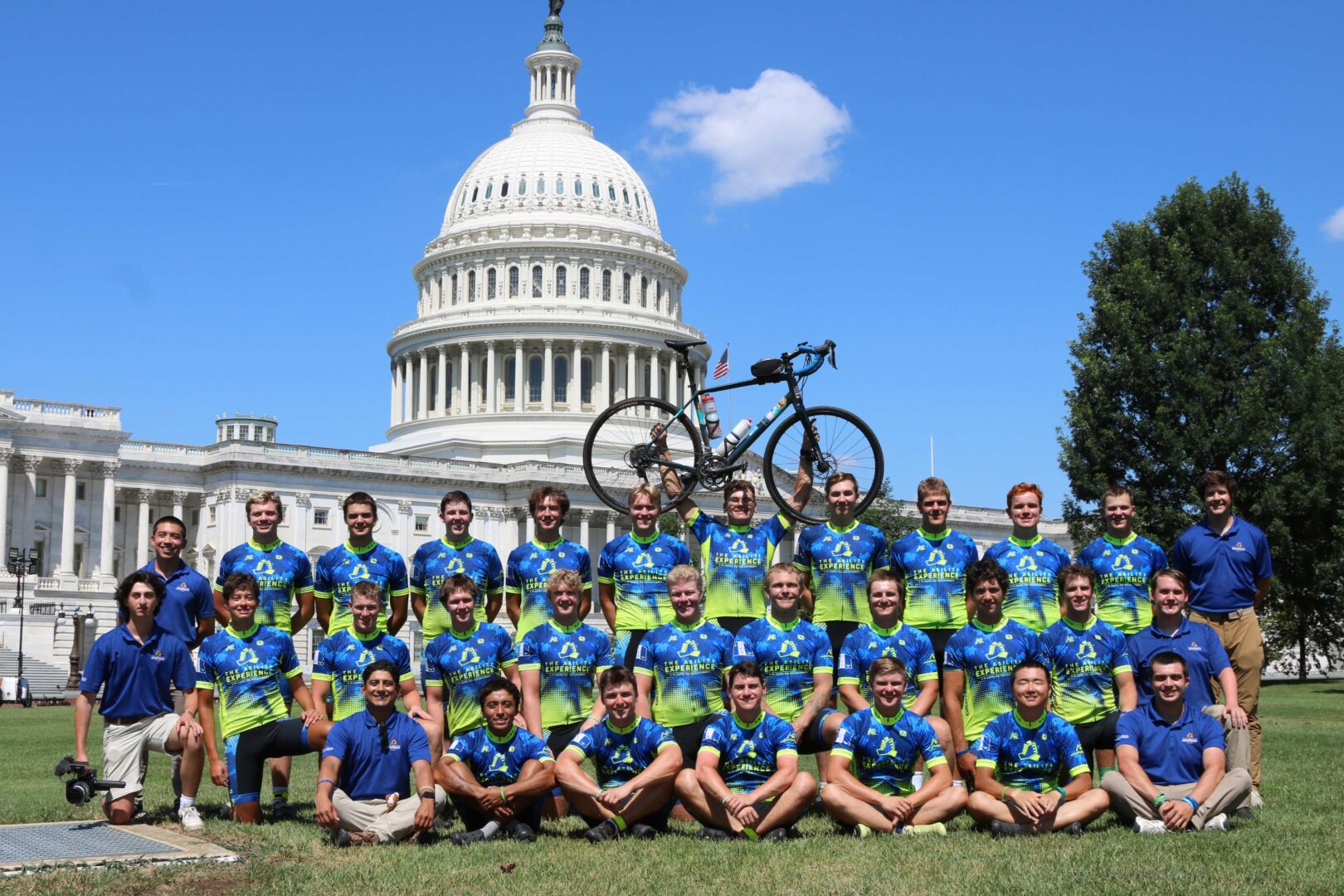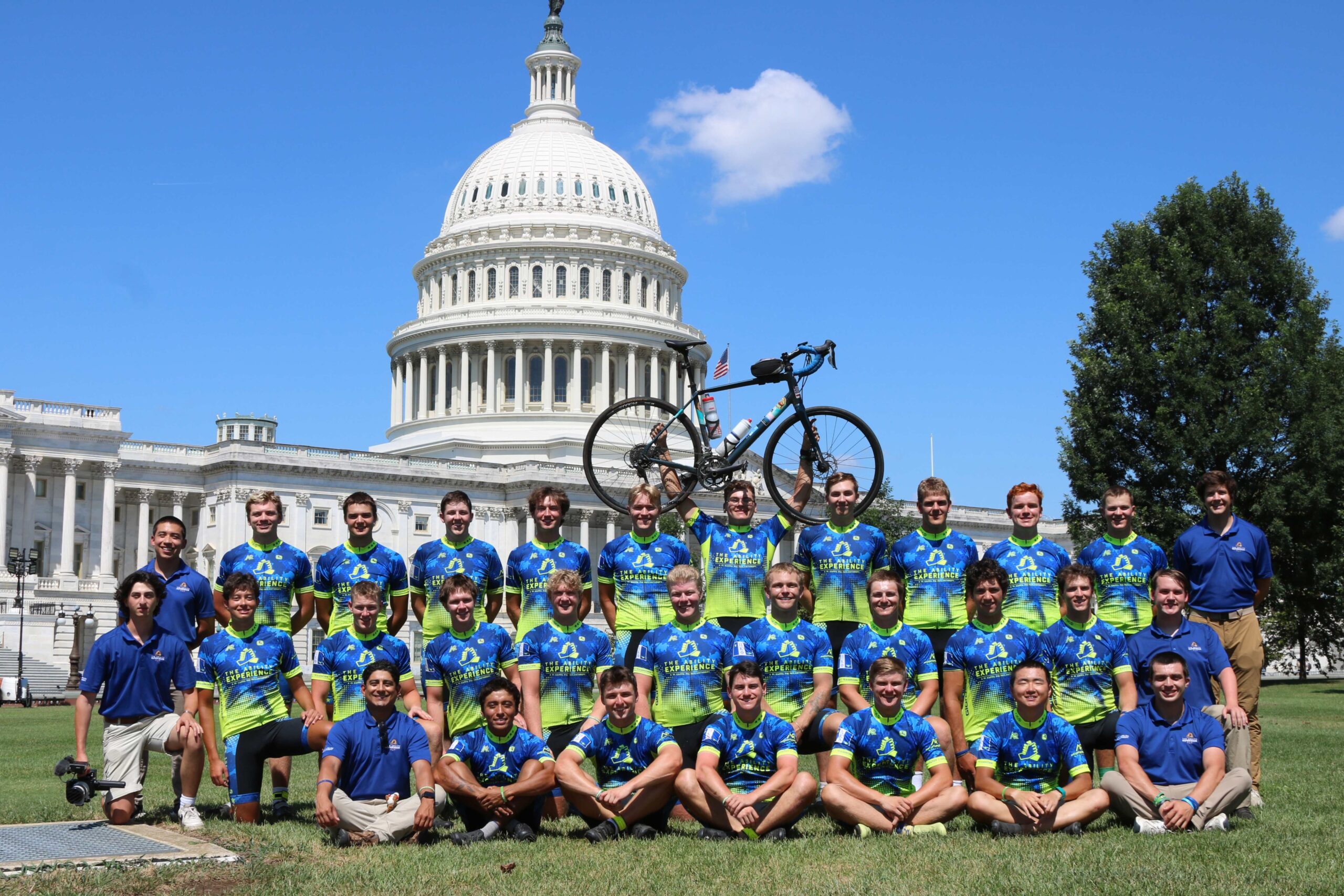When most people think of a summer adventure, they picture road trips, beaches, or as much as students dread it, even internships. For Mark Fedechko, a fourth-year undergraduate studying Information Technology and Management (ITM) in Illinois Institute of Technology, the summer of 2025 was something else entirely. It was a 67-day, 4,450-mile cycling journey across the United States to serve a community often overlooked, for a greater purpose. From June 3 to August 9, he biked from Seattle, Washington to Washington, D.C., as part of Pi Kappa Phi’s “Journey of Hope”, a service-oriented endurance ride that not only tests one’s personal limits, but also philanthropy at its very core.
The Journey of Hope is one of the flagship programs of “The Ability Experience,” a government registered nonprofit organization run by the members of Pi Kappa Phi fraternity, who have dedicated their lives to help people in need. There are two mission statements of this organization, being to serve people with disabilities and to create servant leaders for the future.
One of the ways that it is being done, out of many, is sending cyclists across the country to raise awareness, connect with communities, and fundraise for the very same cause. The program operates through two major routes: the TransAmerica Route (Seattle, Washington to Washington, D.C.), covering a distance of 4450 miles and the North Route (San Francisco, California to Washington, D.C.) with a distance of 3100 miles, each bringing together about 30 people, including fraternity brothers and support crews. Alongside fundraising thousands of dollars, riders make daily stops known as “Friendship Visits,” where they engage and connect with people with disabilities.
For Fedechko, this was his first time undertaking the Journey of Hope, joining 25 cyclists and six crew members on the TransAmerica route. Each day followed a carefully choreographed routine: a 5–6 a.m. wakeup, a quick breakfast, gear checks, and hours of pedaling, often covering 80 to 100 miles, on a normal day, sometimes even further on longer days. The evenings were solely dedicated to Friendship Visits. Once the day was over, the rest of the hours were simply meant for making sure the bike is ready for yet another day of pedaling. It was an intense rhythm, but one that offered constant opportunities for reflection. “It’s a lot of alone time,” said Fedechko. “You get to meditate in your own headspace, but also really bond and connect with your brothers.”
Along the way, the riders witnessed stories of resilience that left lasting impressions. On about day 45 in Kansas, they met a quadriplegic man who became paralyzed after diving into a shallow lake in his late teens. Now decades later, with the help of specialized machinery, he navigates daily life with remarkable strength. Despite this life-altering tragedy, his personality remained remarkably upbeat and full of life, leaving a last impression on Fedechko. The brothers got to meet a lot of mentally and physically disabled people, with their own stories, dreams, and lives. Encounters like these reshaped Fedechko’s perspective, leaving him with a deeper sense of gratitude and an appreciation for communities far different from his own. “I came out of it a lot happier,” he reflected. “You learn to be grateful for the situation you’re in.”
Coming to the main goal of helping communities, the fundraising impact was beyond inspiring. Fedechko personally raised $7,600, contributing to a collective total of $632,000 raised by both routes over the summer. Special events, like “Pedal for Pennies” in Denver, where Special Olympics athletes cycled laps around a lake while pledges poured in, helped raise $17,000 for Colorado’s Special Olympics alone. Denver also marked a highlight of camaraderie, with both routes reuniting for a fun dance competition.
Beyond the miles ridden and the fundraising achieved, the true heart of the Journey of Hope lies in the daily connections; sharing moments with fellow brothers and forging meaningful relationships at Friendship Visits. For Fedechko, the ride was less about physical endurance and more about empathy. “It’s about understanding a community you might not have understood as well before,” he said.
The summer’s effort wasn’t just personal or charitable; it was historical. This year marked the 37th Journey of Hope since its beginning in 1988, and it continues to serve as one of the fraternity’s most meaningful traditions. Pi Kappa Phi remains committed to philanthropy, leadership, and service, making the fraternity’s impact felt far beyond only campus life.
As for Fedechko, to say that the experience was transformative would be an understatement. Cycling across the nation not only pushed him physically but it has also reshaped his mindset. It taught him how to look at life with a sight that’s grateful, grounded, and simply just more aware of the diverse challenges others face every day. Photographer Elda Tuchman, who travelled cross-country along with the crew members and the fraternity brothers, is working on an exclusive documentary, capturing the route’s stories, which will be released later this year, according to Fedechko. He isn’t just stopping with the Journey of Hope. Fedechko is currently training for Ironman, a long-distance triathlon, in 2026, happening in Wisconsin, testing his limits even further while continuing to embrace challenges that test both body and mind.
From the Pacific Northwest to the steps of the Capitol, Fedechko’s summer wasn’t just a ride across America; it was a journey into resilience, service, and gratitude.


